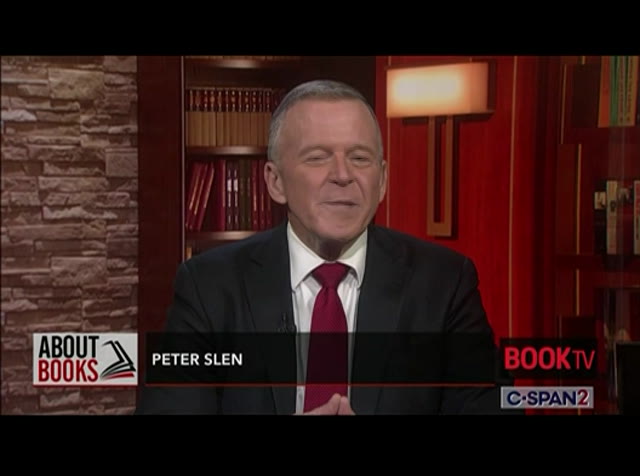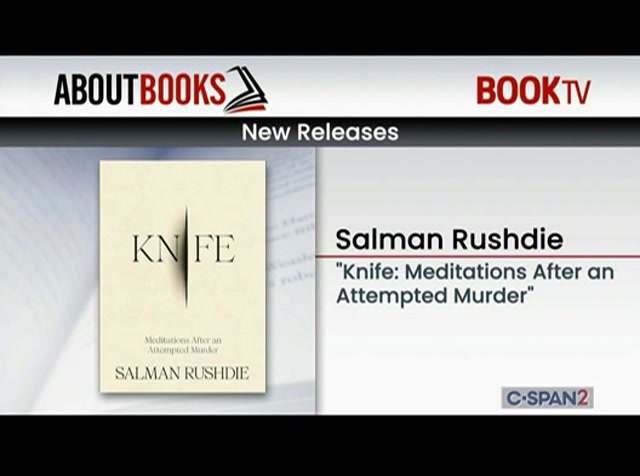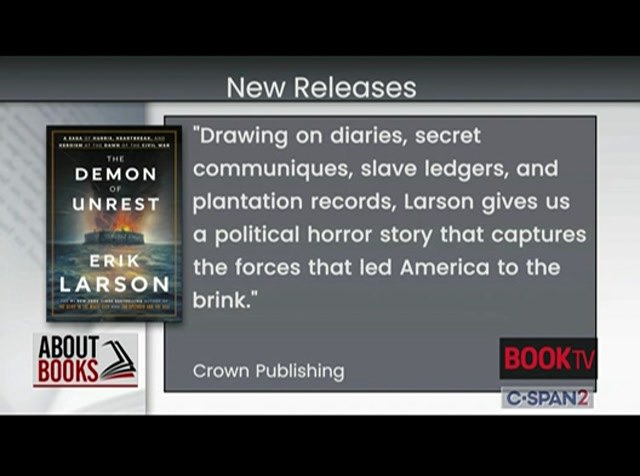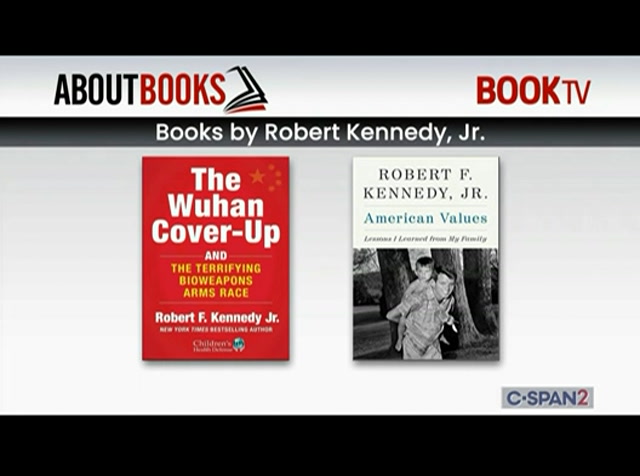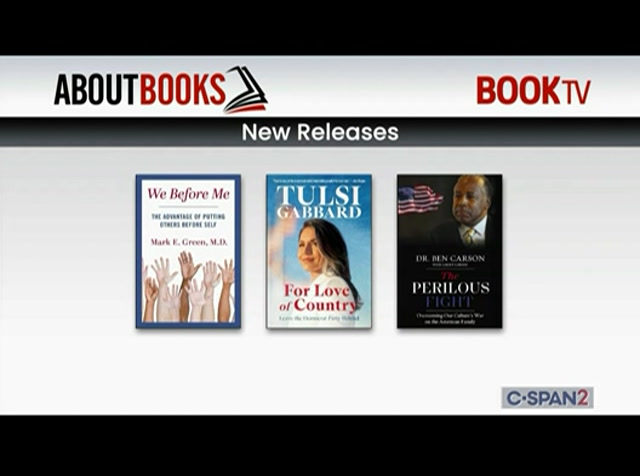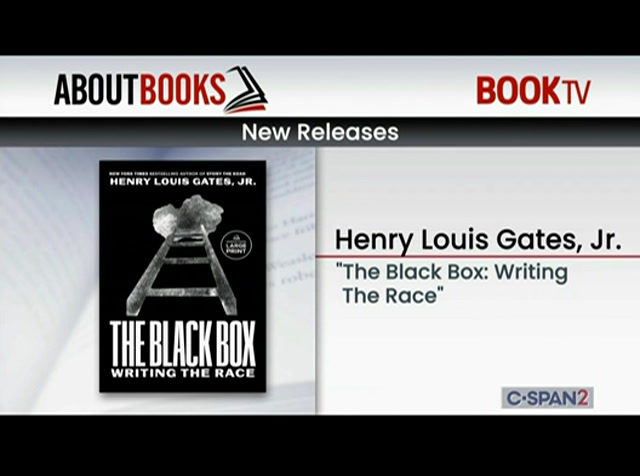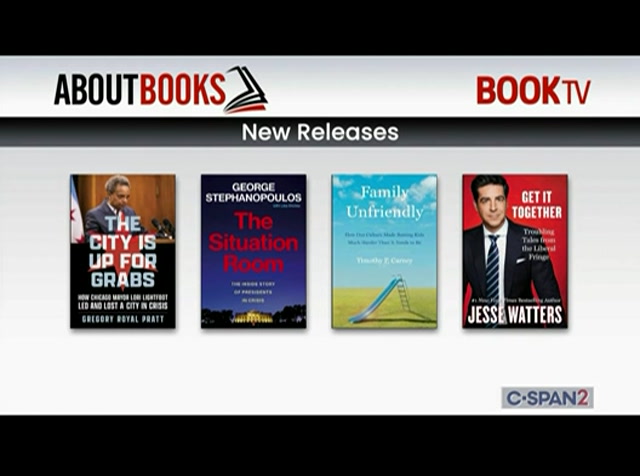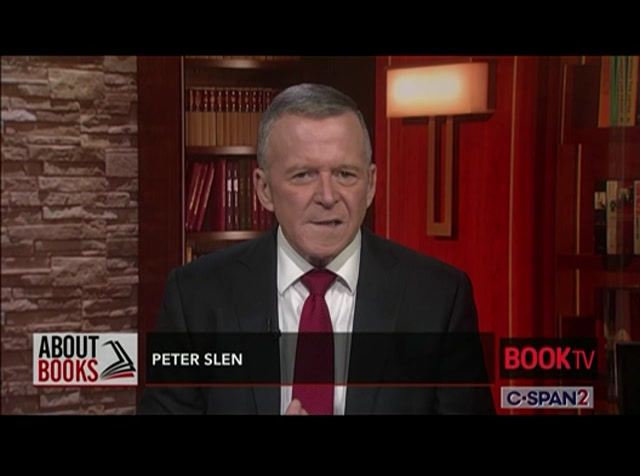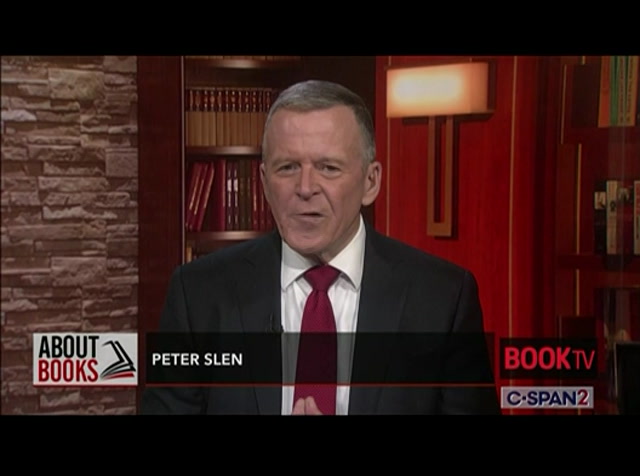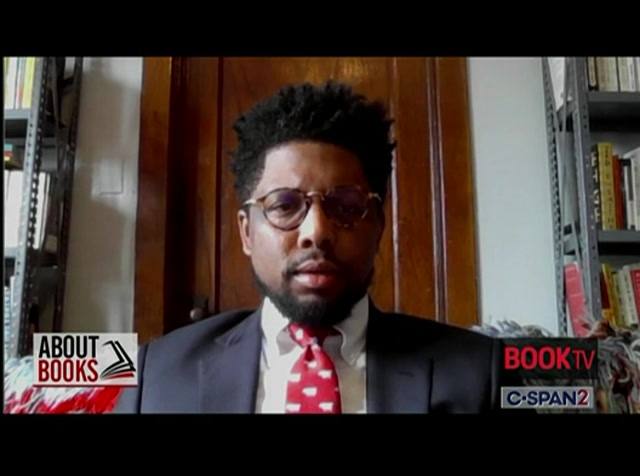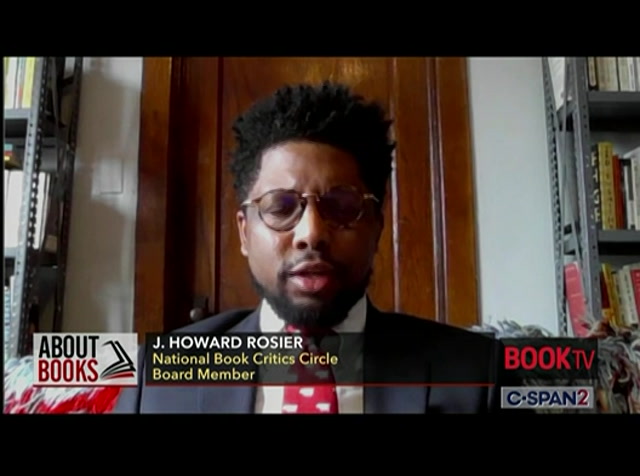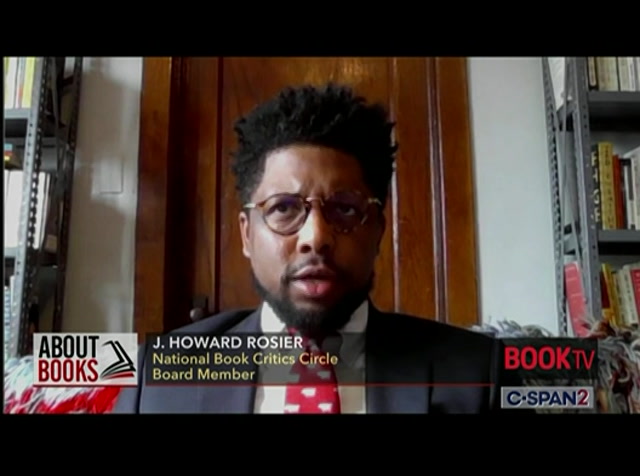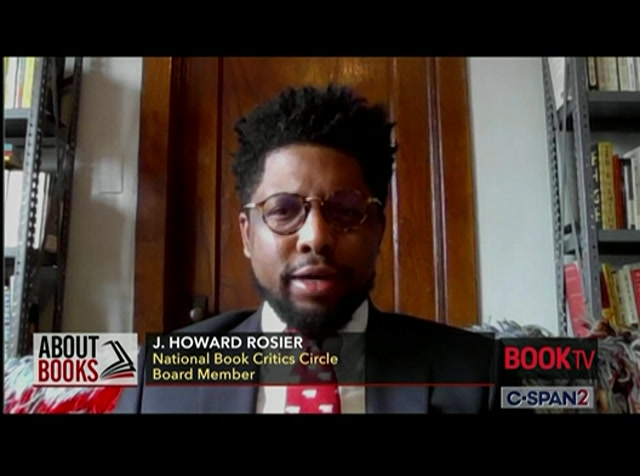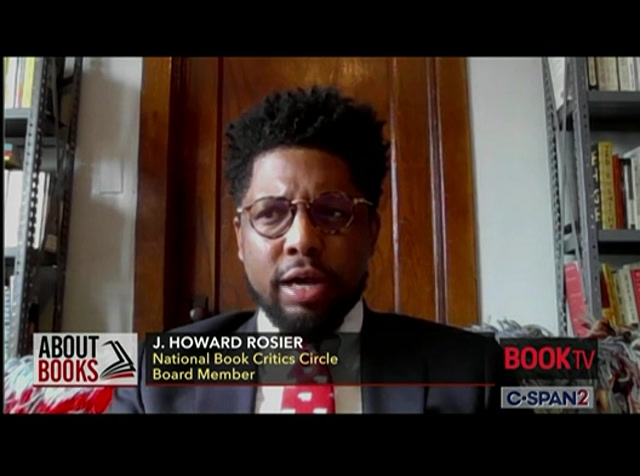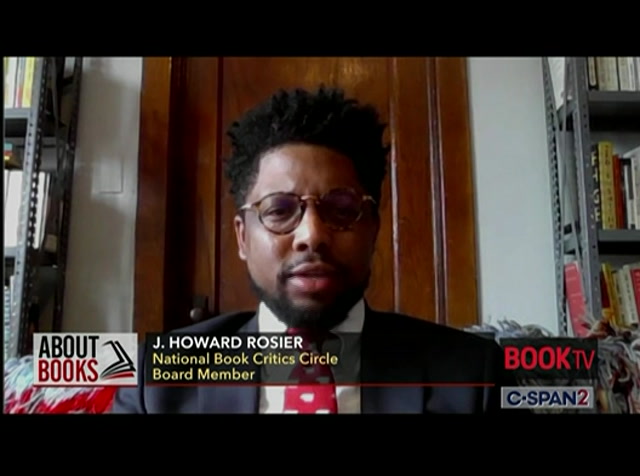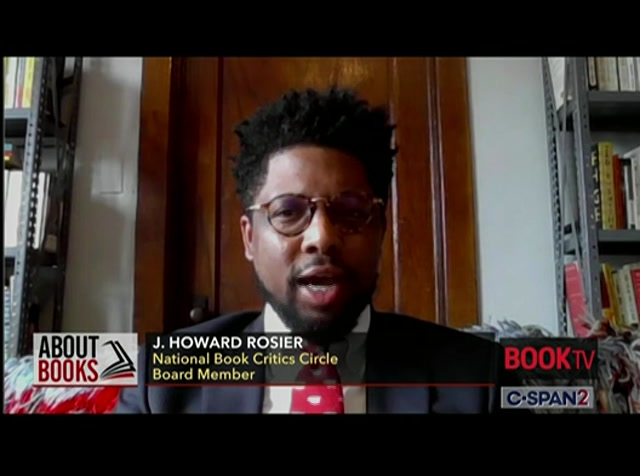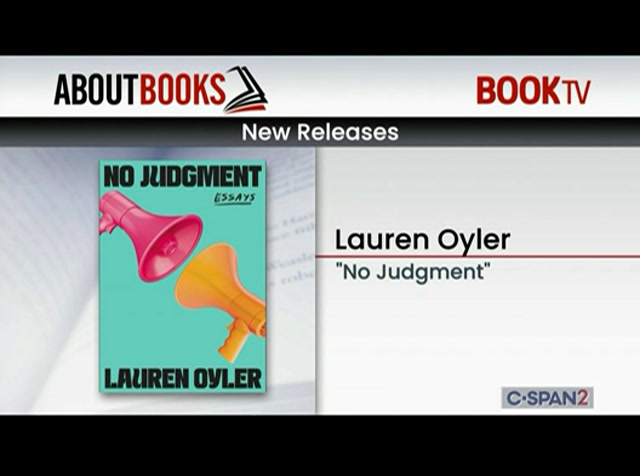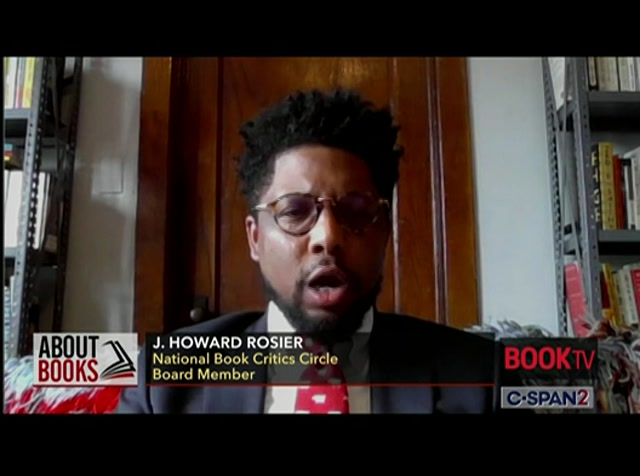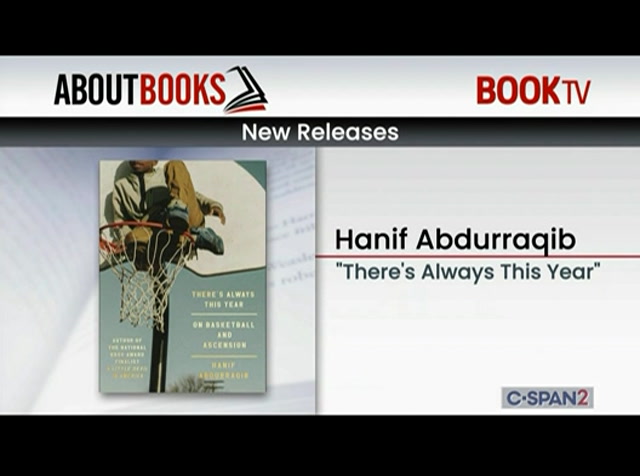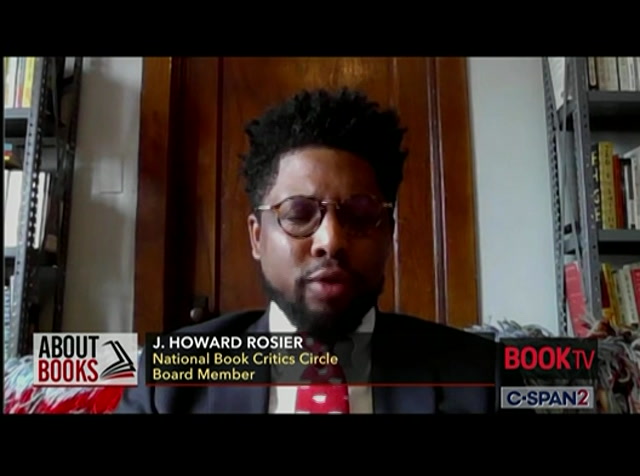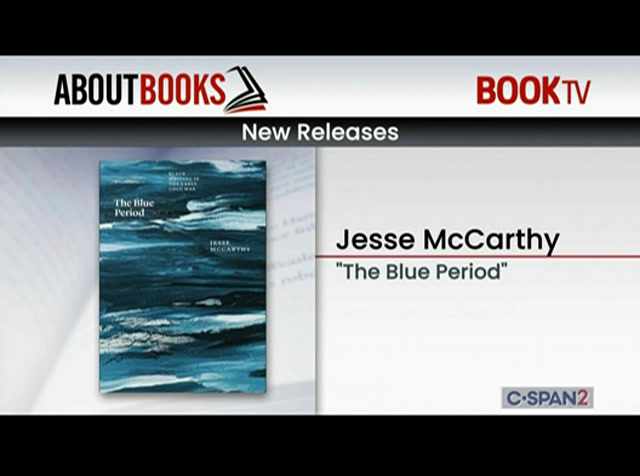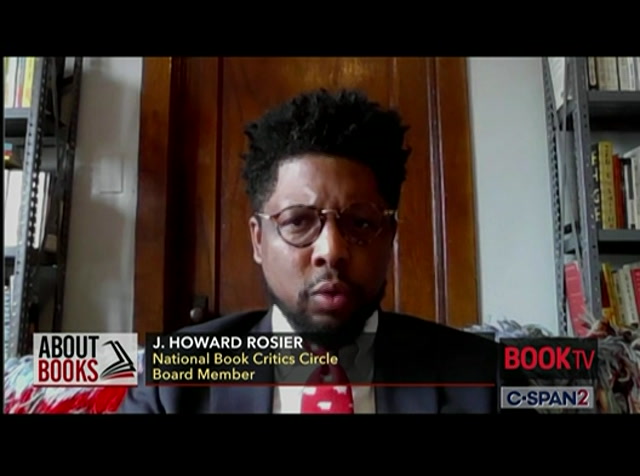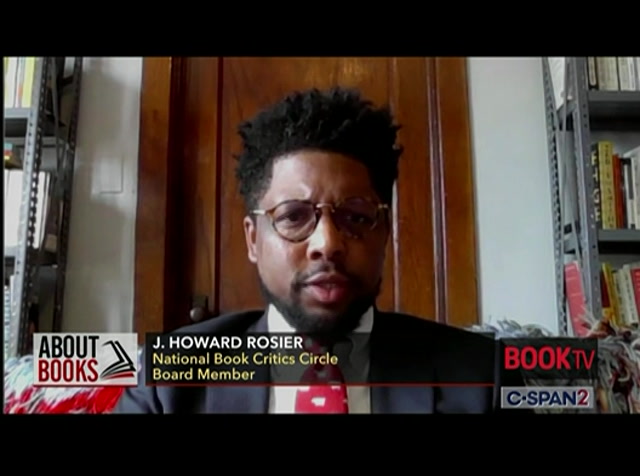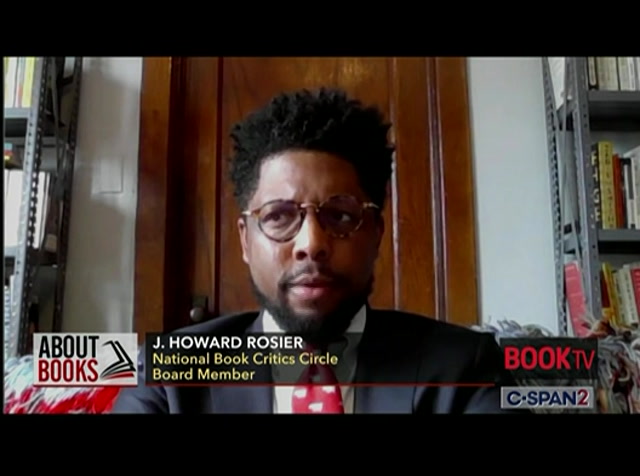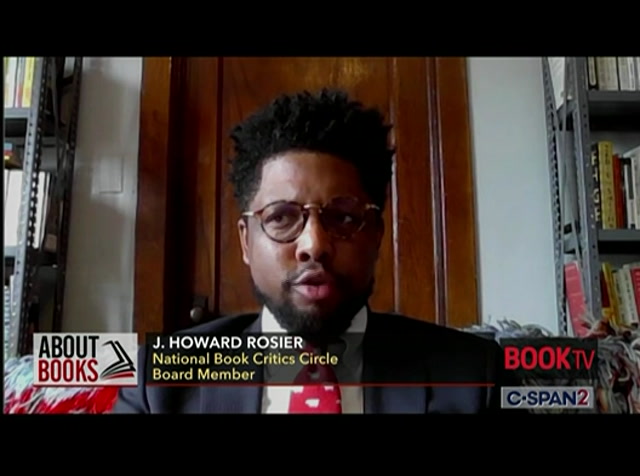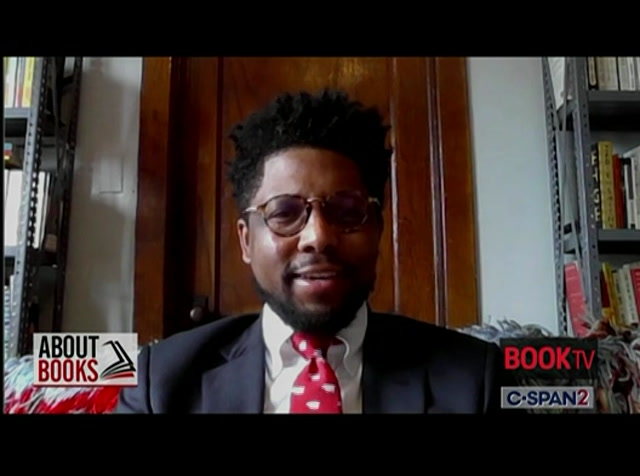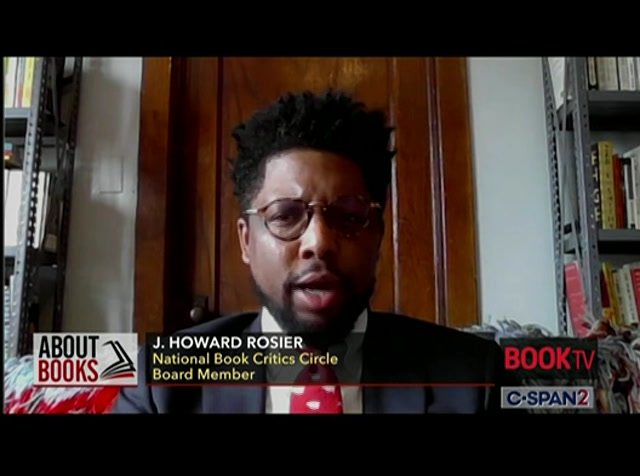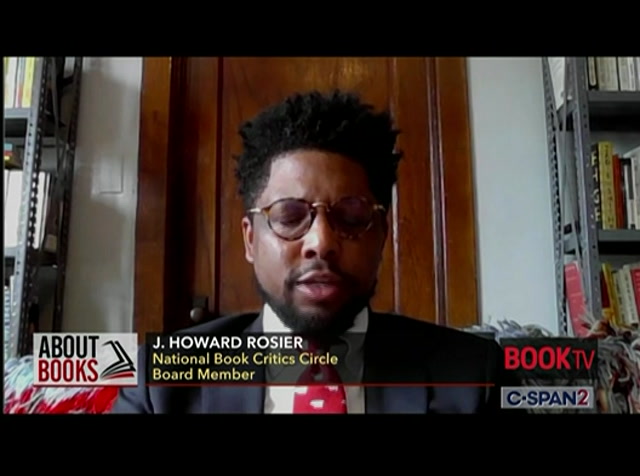tv About Books 2024 Spring Book Preview CSPAN March 28, 2024 6:18pm-6:48pm EDT
6:19 pm
we delve into the latest news about the publishing industry with interesting insider interviews, with publishing industry experts. we'll also give you updates on current nonfiction authors and books. the latest book reviews. and we'll talk about the current nonfiction books featured on c-span, spook tv. and welcome to about books this week. we're doing a spring preview to let you know about some of the new books that are being published. well, in april. thriller writer james patterson will release this book, the secret lives of booksellers and librarians. it's a collection of profiles school and community librarians, as well as books sellers from independent stores to big box chains. the book comes at a timwhen controversies over book bans are in the news. mr. patterson's publisher, little brown, describes the book as a, quote, love letter to the
6:20 pm
heroesf literacy. in a recent interview about the book with publishers weekly, james patterson said, quote, i've been to hundreds and hundreds of libraries d bookstores, and i can tell you this, keeping these places going takes an unbelievable amount of effort. the general public does not appreciate how hard libraries, inns and booksellers work. and also an april award winning author salman rushdie will release his account of the august 12th, 2022 knife attack that nearly took his life. that incident came more than 30 years after the former iranian leader, ayatollah khomeini, called for mr. rushdie to be killed for publishing the book the satanic verses. the british american novelist was blinded in one eye from the attack that took place during an appearance at a new york art center. now, mr. rushdie's newest book is called knife metal asians after an attempted murder.
6:21 pm
and on april 30th, bestselling author erik larson will release his latest, the demon of unrest. the book focuses on the election of abraham lincoln in november of 19, 1860. then april 1861, bombardment of fort sumter and south carolina, and the outbreak of the civil war. crown publishing rights. in its preview of the bo, quote, dwing on diaries, secret communiques, slave ledgers and plantation recor, larson gives us a political horror story that captures the forces that led america to the brink. also, this spring will see new books written by politicians, as well as those who have stood in the political spotlight. in may, south dakota governor kristi noem will release no going back. the truth on what's wrong with politics and how we move america forward. governor noem, of course, has been mentioned as a vice presidential running mate for
6:22 pm
donald trump. governor noem's newest book comes two years after the release of her autobiography, not my first rodeo lessons from the heartland. now, in junepresidential candidate robert f kennedy jr will release is blueprint for improving government. it's titled america's path back to moral leadership. mr. kennedy has published several books since announcing his presidential bid last year, including the wuhan cover up and american values lessons i learned from my family, current and former members of congress are also releasing books this spring. house homeland security chairman mark green will release we before me the advantage of putting others before self. the republican congressman from tennessee is a physician and retired u.s. army major who served as a flight surgeon during tours in iraq and
6:23 pm
afghanistan. and in april, former hawaii congresswoman tulsi gabbard will release her book. it's about her decision to leave the democratic party to become an independent. ms. gabbard ran for president as a democrat in 2020, but announced that she was leaving the party two years later, saying that it had come under the control of an elitist cabal of warmongers. her newest book is titled for love of country why i left the democratic party and former housing and urban development secretary and 2016 president's candidate, dr. ben carson has a new book coming out in may. it's titled the perilous fight overcoming our cultures war on the american family and retired supreme court justice stephen breyer has a new book out as well. justice breyer, who's written over ten books already titled his newest reading the constitution why i chose pragmatism, not textualism.
6:24 pm
and speaking of the supreme court college professor christine blasey ford recalls her decision to testify before congress during the 2018 nomination hearings for justice brett kavanaugh. her new book is called one way back, a memoir. and also just out harvard professor henry louis gates latest book is about the effort by african-american writers from frederick douglass to james baldwin to write and define the black experience. its titled the black box writing the race. and one more new book that's out, we want to tell you about, lawyer and retired harvard law professor alan dershowitz. his latest is called war on woke. why the new mccarthyism is more dangerous than the old. and this is about books, a programing podcast produced by c-span's book tv. in this episode, we're looking at some of the new books that are coming out this spring.
6:25 pm
re are some by journalists. in april, chicago tribune investigative repoer gregory royal pratt is releasing his book on the windy city and its foer may. the title, the city is up for grabs. how chicago mayor lori litfoot led and lost a city in crisis. and in may, clinton white house communications director and current abc host george stephan poce will release the situate in room the inside story of presents in crisis. and the newest book from washington examiner political coluist timothy carney is titled family unfriendly how our culturmade raising kids much harder than it needs to be. and one more. fox news host jesse waters, his latest is called get it together. troubling tales from the liberal fringe. and we should note that there's a new book coming out about a
6:26 pm
journalist. usa today's susan page has written a new biography about one of the most well-known broadcasters in history. barbara walters, the book, which will be released in april, is titled the rule breaker. susan page's previous bestsellers were about former speaker of the house nancy pelosi and first lady barbara bush. now, as we continue our spring book preview here are some notable upcoming titles about foreign policy. cnn's fareed zakaria will release his look at instability and e international order. it's called age of revolutions. progress and bacas from 1600 to the president and american military historian victor davis hanson will lease his latest in may. it's called the end of everythi h wars descend into annihilation. new york times, white house and nation security corrpondent
6:27 pm
david sanger, along with the wilson center's mary brooks, peed new cold wars, china's rise, russia's invasion and america's struggle to defend the west. that book also comes out in april. and catholic university professor and russian expert michael kimmich has penned a study of the russia ukraine war. it's titled collisions the origins of the war in ukraine and the new global instability. and finally, two other notable books we want to mention that are coming out this spring in may, former university of kentucky swimmer riley gaines will release her book. it's about her work to keep trans women from competing in the women's divisions of sports. the book is titled swimming against the current fighting for common sense in a world that's lost its mind. and wnba star and olympic gold medalist brittney griner is publishing a book about the ten
6:28 pm
months she spent in russia's prison system. ms. grinder's book entitled coming home, is being published in may as well. and that's a look at some of the upcoming books this spring. we should note that all of these books will be featured on book tv in the coming weeks. and now a conversation with national book critics circle board member j. howard rosier about the nonfiction books that he's looking forward to in the coming months. so, mr. rose, you're how did you get into the book review business? i'm the joke. and how is that? i always wanted to be a critic, but really know what that meant. i was an undergrad at columbia college in chicago, and i was in the journalism program, but my concentration was magazine writing. and so i was doing a lot of, like, feature writing. but what i like to read was, you know, the new york review of books, back of the book stuff for the new republic, the old
6:29 pm
new republic, and fast forward several. years later, when i got my master's in creative writing from the artist to initiate cargo. i was the critic at the arts paper, the art critic sorry, art critic at the school's paper. and i wound up on a whim applying to the emerging critics fellowship for the national book critics circle. and i learned a lot from my mentors out there and, you know, a few years later down the line, i found myself on the board, which is still feels crazy, but it's been over a long way around. i wasn't a straight path at all. what is the national book critics circle? we are a critic, run or organization that seeks to promote literature and literacy in the u.s. although we have recently launched the translation in private believe is in its third year. we are not funded by any publishers. we're purely independent. so we like to believe that that
6:30 pm
allows us like latitude in terms of judgment, but also. independence as far as uniqueness, as far as titles, we like to think our lists are a little more onerous than other lists just because of 24 people in a room arguing about books all year and every year. the book critics circle gives out awards as well. right. we do. we give out awards and criticism. nonfiction fiction, poetry and autobiography. we also have a first book prize named after the late john leonard. and we also have service awards for people who have done tremendous acts of service on behalf of the nbcc, as well as institutions and literature and culture, poetry more broadly and booktv covers those awards every year. mr. roeser, when people hear the word critic, they think critical
6:31 pm
often. is that is that a fair comparison? i think so. i like to think of my own writing, though, as exuberantly neutral, like i'm not trying to heavily praise or heavily slam a book. i just want to think very deeply and intently about the artist's doing and try to explain to the reader why that moves me or why it does it. but yeah, i guess that requires a bit of like, you know, terror of things apart, a lot of dog ears and book darts and all that post-its. so what makes a good review and what do you see as a mistake in reviewing a book? well, that's a good question. you know, when i talk to my students because i come from a hard news background, they're this idea of balance, right.
6:32 pm
but i think often in a review, when a reviewer without a balance, it's these competing interests or tensions, they're out of whack. so it's criticism kind of sliding into cynicism is like fandom sliding into praise. and so i think the best criticism kind of balances those impulses and explains them in a way that's honest and which is really the most important part, but also like a fidelity to the material, like the auxiliary reading, which there's a lot of that it really informs. what you're doing, but only in so much as that the book itself needs more like knowledge on it for you to land the plane. does that make sense? it certainly does. when it comes to genre. do you have a personal favorite?
6:33 pm
no. no, i my career is all over the place. i've written about visual art, poetry, non fiction, fiction, translation, essay collections, biographies like i'm literally all over the place. so it's a lot of it's interesting. i'll try to write about it. well, the trouble is, it's harder for me to come up with a formulaic template for things. i have to kind of start anew every time i write an essay. but that's a good problem to have because i hope that it would show that. each book is different and that each approach to like writing is unique per book. actually, one of the things that i like doing with international book critics circle is talking about three or four books by different are three or four reviews of a single book and kind of discussing with the
6:34 pm
membership what it means to write that way and how the different authors came to these different viewpoints on the same title. justin howard roger, when you review a book and you're reading it, do you take notes as you go? i do. and then the notes i build out the review from the notes, usually in my phone, about big ideas. i don't take a lot of handwritten notes. i just drop down stuff in the notes and then i'll copy and paste that in a google doc, and then i'll just build around that. but i'm always thinking about writing, even when i'm not writing. so oftentimes they're doing the dishes or like taking a walk. i'm just thinking about how i can explain. why this book is worth a reader's time. and so it's not easy, but i think it's manageable. i'll say where it's i can just gradually earn like a couple
6:35 pm
hundred words into two or 3000 words. hopefully by my deadline. well, we invited you on about books to talk about some of the spring books that are coming up that your interested in. what are some of those books? yeah, there's a lot of good ones. i tried to bring a pretty diverse list because i do like read and write about a lot of different things. i'm really into lauren euler's book, no judgment, which comes out very soon. she's a berlin based critic and novelist. most prominently in the new yorker. harper's london review of books and she has a reputation as a critic who says things that other people are afraid to, particularly about popular books are novelist. i don't think that's an unfair assessment, but i think the trouble is that focusing on this kind of obfuscates her humor and the intelligence with which she constructs her pieces.
6:36 pm
and so this book doesn't really focus on singular writers that kind of focuses on issues in the culture at large. and i think it really allows this the sort of wit and intelligence in her writing to shine. there is a ton of great essays in the collection, i believe a collection of seven essays, but the standouts to me are a rumination on gossip that takes gawker as kind of a test case in the literary world. a recent new yorker piece about anxiety. it was out there in the new yorker and how she handles her own. that kind of takes on sort of frantic pace of anxiety. and she justifies that the advice saying, my catharsis is your boredom. i hope i'm not butchering that quote. but that was such a lovely way to justify her pacing in that. and also a really great piece on the term autofiction, which i sort of quarrel with as a genre.
6:37 pm
it's seen as a pejorative nowadays for a lot of writers. but she very warily, very trenchantly explains why this is actually a novel approach to fiction writing. so that's a great book for sure. and that's lauren euler's no judgment essay. what's another book that you're interested in this spring? oh, there's always this year by hanif abdurraqib that comes out later in the month. terrific writer from columbus, ohio, macarthur fellow recently has also been a national book critics circle finalist for his book called go out in the rain. go ahead in the rain by throw throughout a tribe called quest. it's been a finalist for the national book award and along with the national book award. i don't want to predict the future, but i feel like that might be another one of those.
6:38 pm
it's a really fantastic book about basketball. but that's like saying the odyssey is about ships. it's basketball. it reflects it of life class and racial divides into individual struggles, familial politics. all these books are really unique, structurally. this one counts down and segments the way a basketball game clock would. and then it features these elegiac timeout sections that resurrect famous ohioans both popular and forgotten. and then there's these really startling interludes that are critical appraisals of famous basketball films. so that was kind of a tour de force. i strongly recommend that one as well. and you also put on your list jesse mccarthy. yes. professor of english. of english and african-american studies at harvard. a great critic. a great novelist as well. recent wine award winner for his
6:39 pm
last book, who will pay reparations on my soul. this is a critical survey, actually, but i don't want to philip short it if we are really smart. our revisionist history that seeks to quarrel with this binary of cold war politics, specifically how it impacted black writers. there's this perception he's trying to capture where the feeling of being martyred in american culture and then this feeling of being used by soviet communism. an example why the american system is failing. kind of what black writers to the search for a more autonomous and individualist path with their esthetics. the title is a reference to miles davis in the 50th. and the idea that his music was more cerebral, like the parsing
6:40 pm
and the sort of searching of his notes, the brevity was sort of a reflection of a thought rather than like a sort of a straight musical or theoretical approach. and he kind of mccarthy kind of looks at. richard wright and gwendolyn brooks, james baldwin, as well as writers who aren't really known, such as vincent carter, with this sort of sense of thoughtfulness about the impact of their work within this cold war binary. ralph ellison is not featured in the book, but he does. the specter of it kind of factors pretty heavily in the sort of idea of being underground for having not been seen and how that haunts. the book by the authors own admission, like the reason why these writers are their motivation for the book is this
6:41 pm
idea of not being seen by the society at large, and this is what's caused them to seek out these individual autonomous mode within the cold war framework. and that is jesse mccarthy's upcoming book, the blue period. black writing in the early cold war. why do you think he calls it the blue period? it's a reference to miles davis specifically to the sort of fifties work that's leading into kind of blue in this idea that you think it's one thing with miles davis where the brevity of his music is a theoretical music theoretical framework. what a reality, what he's doing is sort of allowing. his like scales in his notes to reflect the act of thinking. and so overarching li, it's a book about thinking differently
6:42 pm
about art and black art specifically. so that's the title of the homage to that. justin howard rogier is it tough to be a critic and be based in chicago and not new york, the center of book publishing? you know, i feel for lauren for not seeing friends of mine and. not be able to go to parties and stuff. but most of my writing appears in magazines in new york, so it's not that hard for me. i would say, though, that initially it was harder to get a look because i'm not hanging out as much as i am, but i hang out in chicago. but my wife is from new york, so i'm back and forth pretty often. and also, i co-curator reading series in chicago called exhibit b, and we do show that new york got two or three times a year, usually with the center for fiction.
6:43 pm
we also do stuff for new york poetry festival. so i'm there often enough. but for me it is hard. i miss my friends, a lot of which happened to live in brooklyn. is there a book in you. that's a good question. i've been working on a novel for a quite a while. i'm still working on it. probably that persists and i'm actually looking at taking an essay that i wrote about roger reeve's book of dark days and turning that into a book. it was basically the the theory was kind of looking at the summer of 2020 as year zero, just in terms of how that changed, how black writers sort of perceived the response ability, whether or not on the liberal side that the summer of 2012, it didn't go far enough, or on the conservative side, whether the loss of social order
6:44 pm
ended up being more harmful than good. and so i'm would like to write a book that might graduate tinkering away at more than my novel, to be honest about how black. literature does come to resemble has been reconfigured by the events that happened in the summer of 2020 with, you know, the death of george floyd and breonna taylor. go back and finish one of them. well, i want to ask you about another book on your list of upcoming spring books. mohammed amir. maziar. yes. yes. this is a terrific revisionist history called the states of the earth, an ecological and racial history of secularization, a very long title. but one of the most interesting on nonfiction books i've read so far, the transition from, you
6:45 pm
know, religious states or protean christianity to more secular states and politics is seen as one of the great triumphs of the world. what you factor in colonialization and according to the author, what we're left with is this trojan horse for what the author refers to as racial capitalism or the idea that the capitalist structure is discriminatory and oppressive to marginalized people by design. and so we argue there's a direct correlation with these systems and also the fraught ecological state that we find ourselves in. really interesting book that focused on africa, north africa, mostly. but there's some good writing toward the end on western europe as well. that brings the ideas of the book full circle. what are from what i favorite presses of verso? lots of left of center, left as works that kind of rethink a lot of preconceived notions about
6:46 pm
politics in america and the west. so i'll shut them out as well. when you read books or look for books, is left of center important to you? no, no, i'm actually one of the pieces i'm working on right now is about the conservative comments. hater glenn lowry is a memoir that's coming out in may. i'm working on a long essay about that. and the orbit of black conservative lives that have sort of coalesced around him on the internet and his podcast, the glenn show. i'm just looking for something that's interesting. if i'm being transparent, my politics definitely runs. i'm more to the left than i am to the right, certainly, but i don't really focus on political bias or the culture as what i'm writing. and just like, is this interesting to me for better or for worse in wired and the second part, which i think i mentioned earlier at explaining to the reader why that is and why they should spend some time
6:47 pm
reading justin howard rosier of the national book critic circle. thanks for spending some time with us on book tv. oh, my pleasure. thanks for the invite. well, thanks for joining us for about books, a program and podcasts produced by c-span. book tv book tv will continue to bring you publishing news and author programs. and a reminder that you can get this podcast on the c-span now app. you can atch online any time all of tv's programs at booktv dawg.
6 Views
IN COLLECTIONS
CSPAN2 Television Archive
Television Archive  Television Archive News Search Service
Television Archive News Search Service 
Uploaded by TV Archive on

 Live Music Archive
Live Music Archive Librivox Free Audio
Librivox Free Audio Metropolitan Museum
Metropolitan Museum Cleveland Museum of Art
Cleveland Museum of Art Internet Arcade
Internet Arcade Console Living Room
Console Living Room Books to Borrow
Books to Borrow Open Library
Open Library TV News
TV News Understanding 9/11
Understanding 9/11

